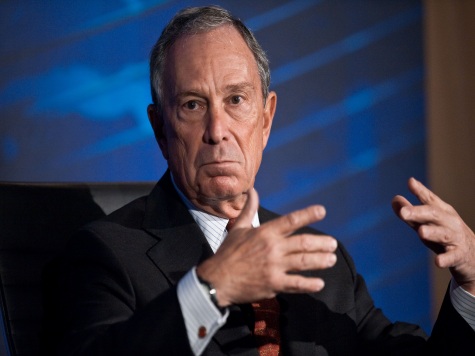The problem with the economically illiterate and inept is that they often forget to consider the secondary effects of their actions. The secondary effects of Mayor Bloomberg’s latest plan to ban the sale of large sodas and “sugary drinks” will do exactly the opposite of what he intends.
It’s typically more economical, on a per-ounce basis, to purchase larger sodas–which, at the margins, encourages more soda consumption. Bloomberg’s intention is to ban the sale of the larger sizes, which will, again, at the margins, decrease soda and “sugary drink” consumption.
This sounds perfectly logical, but it’s wrong. Regulation doesn’t happen in a vacuum, and the market will find a way around this silly regulation.
Here’s what’s really going to happen:
Restaurants that offer free refills are still allowed to offer free refills; however, only a 16 oz cup may be sold. Today, when a consumer elects to purchase a larger sized cup at an establishment that serves free refills, what that consumer is signaling is that he intends to drink more soda. The restaurant charges accordingly. If Bloomberg’s proposed ban goes into effect, the restaurant loses information that it once had: specifically, how much soda the consumer intends to consume. The restaurant, in order to keep its costs in line with its pre-ban costs, will have to raise the price of the smaller cup.
The price of a 16 oz cup will increase to somewhere between the current 16 oz price and the gigantic size (whatever that may be at a given restaurant).
Some people who used to drink what Bloomberg considers to be an appropriate amount of soda will simply stop buying soda when the price goes up; some will consume exactly the same amount of soda as before, but pay more for that choice; and some will drink more soda, because they feel they’ve paid for it and need to derive more value from their free refill purchase. If you view increased soda consumption as “bad,” then this is a net “bad” for the population of people Bloomberg believes consume soda in appropriate amounts. It does the opposite for this group by encouraging some percentage of those making “healthy” choices to consume more soda.
Now for the population that Bloomberg is trying to affect: those who drink massive quantities of soda will still be able to do so via free refills by making more trips to the soda fountain. It will just cost them less to do so.
In essence, what this ban will do is cause those who make “healthy” soda choices to subsidize those who make “unhealthy” soda choices. The group whose behavior Bloomberg is trying to change will actually have their behavior paid for in part by the group whose behavior Bloomberg approves of.
Well done, Mike. You’re going to get a lesson in secondary effects. I’ll give you the Cliff’s Notes: they almost always act in opposition to the intended effects.

COMMENTS
Please let us know if you're having issues with commenting.